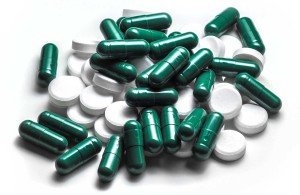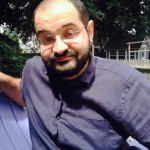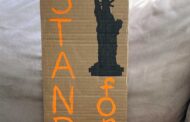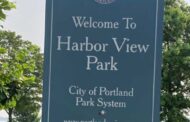Maine needs a more humane drug policy that should include the life-saving drug naloxone.
by Rob Korobkin
In 2015, drug overdoses in Maine soared by 31 percent, reaching a new high of 272 fatalities and nearly doubling the number of heroin-related deaths. Today, as opiates and opioids are killing hundreds of people throughout our state, we are increasingly finding ourselves ravaged by a terrifying epidemic. Action is desperately needed, and the drug naloxone is part of the solution.

More draconian punishment won’t fix anything. It will just alienate people, castigating them into a hole of second-class citizenship. It won’t help them get their shit back together. It won’t help us heal as a community. It will only dig us deeper.
If we are serious about addressing this epidemic, we need to be as prepared as possible to keep hard drug users alive. We can’t afford to watch any of our friends and loved ones slip off into the cold abyss of overdose. We’ve already lost too many.
Frequently, the drug naloxone, which has the miraculous ability to reverse the effects of opiate overdose in the brain, is the thing that makes the difference between a person living or dying when experiencing an overdose. If they live, the hope remains that they will one day access treatment, as many do, and become whole again. If they die, they simply become another tragic statistic. Naloxone, which is also sold under the brand name Narcan, truly is amazing.
Anybody who interacts regularly with hard drug users in any capacity, whether they’re cops, social workers, the family and friends of active drug users, or the drug users themselves, should have access to naloxone. The Maine legislature made progress toward increasing access to naloxone in April of 2014 and is currently considering LD 1547, which would remove the requirement for a prescription.
I commend their progress, but I think the government needs to do more. Lifting the prescription requirement will help remove the roadblocks to people acquiring naloxone, but more people need to know that it exists and need to learn how to use it.
I think the government should fund free naloxone trainings and launch extensive public education initiatives around it, ensuring that anybody in Portland who needs it can get it. Otherwise we’re writing off our neighbors to die.
Doing so will require us to shift the story, so that we stop regarding people using hard drugs as if they were faceless thugs. There are no faceless thugs. Everybody is somebody’s son or daughter, and most parents do the best they can to love their kids. We need to put a human face on this epidemic and spread the word that, whether you’re caught up in the worst forms of active addiction or simply behaving recklessly, recovery is possible, especially within a strong, healthy community.
This is not to say that any of this work is easy. Heavy drug use is shameful and brutish and alienating and not remotely socially acceptable – it truly is ugly. This epidemic wreaks damage on all aspects of our society and cuts deep to the core of what it means to be human. But prohibition, at least by itself, is an expensive, violent and ultimately ineffective solution. We need public policy that helps sick, kind-hearted people reclaim their lives.

Rob Korobkin
Yes, it’s scary. Much of the work that truly makes a difference in the lives of people who are struggling with this stuff is in the trenches. In the detoxes and halfway houses. The heartbreaking phone calls. The hopeful cigarettes in church parking lots. This disease grows on loneliness and lives in festering sores and puddles of bile.
Nothing we can do will make everything okay. That’s not what any of this is about. But we can do a much better job here as a community. And we should.
Rob is a software engineer, community organizer, teacher and musician. He can often be found at Peloton Labs, staring at his laptop, drafting diatribes and programming software late into the night.






Naloxone: There are no faceless thugs
Maine needs a more humane drug policy that should include the life-saving drug naloxone.
by Rob Korobkin
In 2015, drug overdoses in Maine soared by 31 percent, reaching a new high of 272 fatalities and nearly doubling the number of heroin-related deaths. Today, as opiates and opioids are killing hundreds of people throughout our state, we are increasingly finding ourselves ravaged by a terrifying epidemic. Action is desperately needed, and the drug naloxone is part of the solution.

More draconian punishment won’t fix anything. It will just alienate people, castigating them into a hole of second-class citizenship. It won’t help them get their shit back together. It won’t help us heal as a community. It will only dig us deeper.
If we are serious about addressing this epidemic, we need to be as prepared as possible to keep hard drug users alive. We can’t afford to watch any of our friends and loved ones slip off into the cold abyss of overdose. We’ve already lost too many.
Frequently, the drug naloxone, which has the miraculous ability to reverse the effects of opiate overdose in the brain, is the thing that makes the difference between a person living or dying when experiencing an overdose. If they live, the hope remains that they will one day access treatment, as many do, and become whole again. If they die, they simply become another tragic statistic. Naloxone, which is also sold under the brand name Narcan, truly is amazing.
Anybody who interacts regularly with hard drug users in any capacity, whether they’re cops, social workers, the family and friends of active drug users, or the drug users themselves, should have access to naloxone. The Maine legislature made progress toward increasing access to naloxone in April of 2014 and is currently considering LD 1547, which would remove the requirement for a prescription.
I commend their progress, but I think the government needs to do more. Lifting the prescription requirement will help remove the roadblocks to people acquiring naloxone, but more people need to know that it exists and need to learn how to use it.
I think the government should fund free naloxone trainings and launch extensive public education initiatives around it, ensuring that anybody in Portland who needs it can get it. Otherwise we’re writing off our neighbors to die.
Doing so will require us to shift the story, so that we stop regarding people using hard drugs as if they were faceless thugs. There are no faceless thugs. Everybody is somebody’s son or daughter, and most parents do the best they can to love their kids. We need to put a human face on this epidemic and spread the word that, whether you’re caught up in the worst forms of active addiction or simply behaving recklessly, recovery is possible, especially within a strong, healthy community.
This is not to say that any of this work is easy. Heavy drug use is shameful and brutish and alienating and not remotely socially acceptable – it truly is ugly. This epidemic wreaks damage on all aspects of our society and cuts deep to the core of what it means to be human. But prohibition, at least by itself, is an expensive, violent and ultimately ineffective solution. We need public policy that helps sick, kind-hearted people reclaim their lives.
Rob Korobkin
Yes, it’s scary. Much of the work that truly makes a difference in the lives of people who are struggling with this stuff is in the trenches. In the detoxes and halfway houses. The heartbreaking phone calls. The hopeful cigarettes in church parking lots. This disease grows on loneliness and lives in festering sores and puddles of bile.
Nothing we can do will make everything okay. That’s not what any of this is about. But we can do a much better job here as a community. And we should.
Rob is a software engineer, community organizer, teacher and musician. He can often be found at Peloton Labs, staring at his laptop, drafting diatribes and programming software late into the night.